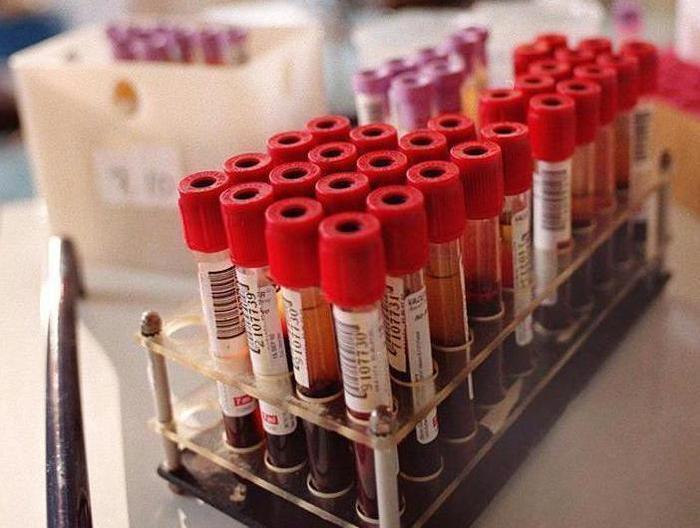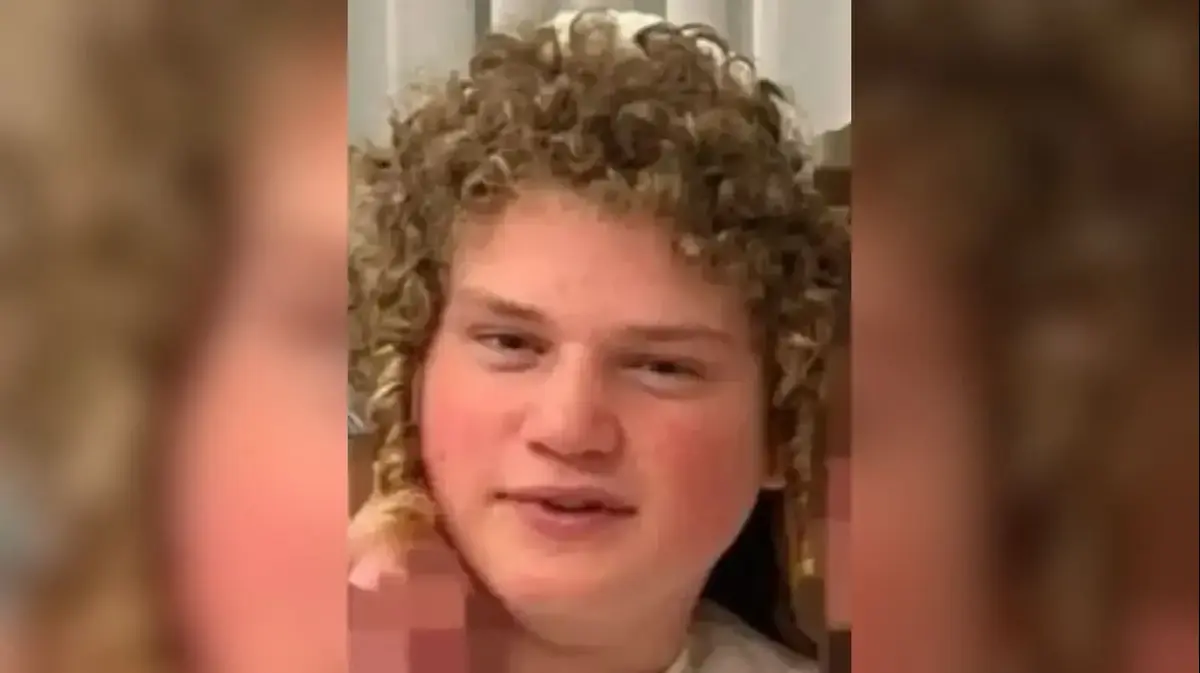By Teddy Wilson - openDemocracy
"When you force someone to hold back from being who they are, that's not freedom, that's not gospel," says Dylan Gunnels, an advocate for LGBTQ + people.
Last month, Gunnels recounted his experience before the city council of Columbia, the capital of South Carolina, where he lives.
There he described his own
"psychological trauma" from having to endure attempts to change his sexuality.
"Science shows that they are more harmful than useful," he said.
Columbia is the most recent example of a trend in various regions of the United States — at least 90 cities, counties, and other municipalities — that cracked down on the controversial practice of “conversion therapies,” which
attempt to change orientation. sexual or gender identity of people.
Almost half of those bans (43) have come into effect since 2019.
40% of LGBTQ youth considered suicide in 2020, study finds
June 30, 202104: 19
[New Jersey will house trans inmates according to their gender identity and not according to their sex assigned at birth]
On May 4, the Columbia city council passed an ordinance on the first ballot that outlaws "the provision of conversion therapy or reparative therapy to a minor [...] if the provider receives payment for those services."
The ordinance obtained its final approval on June 16.
These attempts to change or influence people's sexual orientation, erroneously known as 'therapies', have been condemned by dozens of medical associations around the world.
They are
"really terrible, discredited and damaging,"
says Logan Casey, senior policy researcher at the Movement Advancement Project (MAP), a Colorado civil society group.
Casey attributes local measures against conversion therapy to "growing public awareness."
"People are alarmed when they see that it is a contemporary problem, and
that they must do something to protect their sons and daughters,
" he says.
“It breaks my heart to think of a young person being subjected to things like this,” explains Tameika Isaac Devine, a Columbia councilor.
A shelter in Mexico houses migrants from the LGBTQ community fleeing their countries due to homophobia
June 30, 202102: 29
[About 1 in 5 young adults say they are not heterosexual, according to a global survey]
The Trevor Project, which campaigns for the prohibition of these “conversion treatments”, found in a survey conducted in 2020 that 10% of LGBTQ + youth had suffered from these practices and that they “during the previous year
reported rates of suicide attempts twice as high
”than those registered among those who had not experienced these practices.
Local action and reaction
Actions to prohibit such practices appear to gather momentum in cities as they garner public support and political capacity.
Seven city and county governments have banned them so far this year, and at least one more (Norman, Oklahoma) is studying a similar ordinance.
Recently, the human rights commission in Norman (a city of about 120,000 people) unanimously recommended to the local council that it
prohibit the medical professions from providing such treatments to minors.
In general, these local laws prohibit “conversion therapies” for those under 18 years of age provided by health professionals with state-issued licenses to practice, but many do not prevent such practices from being performed by religious organizations.
Councilmember Tameika Isaac Devine at the Trans & Queer Field Day event in South Carolina, May 2021.Mahkia Greene, SC United for Justice & Equality
[Biden issues executive order expanding protections for LGBTQ people]
Influential conservative groups that are against the rights of LGBTQ + people, as well as lawmakers from the Republican Party, have fiercely resisted these bans.
Across the country,
twenty states and the District of Columbia also adopted laws prohibiting such practices
for minors.
The last ones were Utah and Virginia, last year.
Most of those laws had bipartisan support, and eight were enacted by Republican governors.
This year, at least three dozen bills were introduced to ban or restrict "conversion therapies" in seven state legislatures, but so far, very few have been addressed in hearings.
In his presidential campaign, President Joe Biden pledged to support the bill to Prevent Therapeutic Fraud, which would introduce a federal ban against such "conversion" practices that are carried out privately.
Another bill seeks to prohibit the use of federal resources from the Medicaid public health plan to pay for these practices.
But the real action, it seems, continues at the local level.
[Five Tips for Parents to Help Their Children Avoid Gender Stereotypes]
"It's very important to keep trying to get a federal ban on conversion therapy passed," says MAP's Casey.
But "state and local activists will continue to push for local bans and the adoption of protections as soon as possible, while we wait and work for a federal law that grabs public attention."
“We see lots of local ordinances sprouting up, as residents take it upon themselves to create protections that the state does not undertake,” Casey explains.
Pride month: young Mexican-American defends LGBTQ + rights in the US
June 9, 202102: 06
Resistance and resilience
Devine, the Columbia councilwoman, explains that the municipal legislative body reviewed other ordinances adopted in different cities with the help of LGBTQ + LO, a bloc of the National League of Cities, as well as a draft provided by the Human Rights Campaign, the organization of America's Most Prominent LGBTQ + Advocacy and Lobbying
“Please let us do the right thing for our youth.
Please
let us do the right thing for our most vulnerable populations
, ”Dylan Gunnels said when speaking to the Columbia council.
"By doing so, you send the message" that equity and the protection of youth "are a priority for the city," he argued.
["We are invisible": discrimination and risks multiply for indigenous LGBTQ +]
Gunnels is the founder of Agape Table, a support group for LGBTQ + believers who had traumatic experiences, including pseudo-conversion therapies.
After losing the 2018 council run, Gunnels worked with his opponent in those elections, Howard Duvall, who sits on the city council, on LGBTQ + inclusion issues.
The Columbia city council has been "an ally and an advocate," according to Gunnels, but local churches and religious groups joined forces to resist the ban.
The Palmetto Family Council - a South Carolina affiliate of the Family Policy Alliance, a national right-wing Christian lobby group - and conservative evangelical churches launched a campaign of phone calls to council members to vote against the ordinance.
"The signal they give is that you are not welcome at the table, that they are
going to do everything they can to combat your true equality,
" Gunnels says.
Republican state senator Josh Kimbrell sent a letter to the South Carolina attorney general asking him to "overturn" the Columbia ordinance, which he described as an example of "unbridled political correctness."
Stonewall: The Historic Night LGBTQ + Pride Was Born
June 10, 202103: 24
[LGBTQ students will have protections against discrimination in schools following a decision by the Department of Education]
Kimbrell "does not represent the citizens of Columbia," says Devine.
"I don't pay much attention to your letter," he adds.
This year, Kimbrell sponsored a failed project to include state mental health professionals in South Carolina's 'right of conscience' laws, which provide legal protection for those who refuse to participate in procedures that violate their religious convictions. (such as abortions and contraceptive prescriptions).
The legislator argued that the bill "would replace any municipal ordinance," including Columbia's to prohibit pseudo-conversion therapies.
Kimbrell also proposed a bill to ban trans women from playing sports in high schools.
Melissa Moore, regional administrator for the Women's Rights and Empowerment Network, and a veteran LGBTQ advocate in South Carolina, notes: "If our voices weren't powerful, those who oppose us wouldn't work so hard to silence us."
"The story about South Carolina that gets amplified the most is that of its bigoted legislators and the
terrible things that queer people go through, black and brown
people, people who live below the poverty line," says Moore.
But while the reactionary politics of South Carolina is very familiar to him, Moore adds: "There is another story here, a rich history of resistance and resilience."
This article was published by OpenDemocracy's Documenting the Resistance.




/cloudfront-eu-central-1.images.arcpublishing.com/prisa/WPWCSHOWPNB4ZHMQCKZJHXPMOM.jpg)


/cloudfront-eu-central-1.images.arcpublishing.com/prisa/RDU33EMH6NBSHNKREMLJH4TGFQ.jpg)
